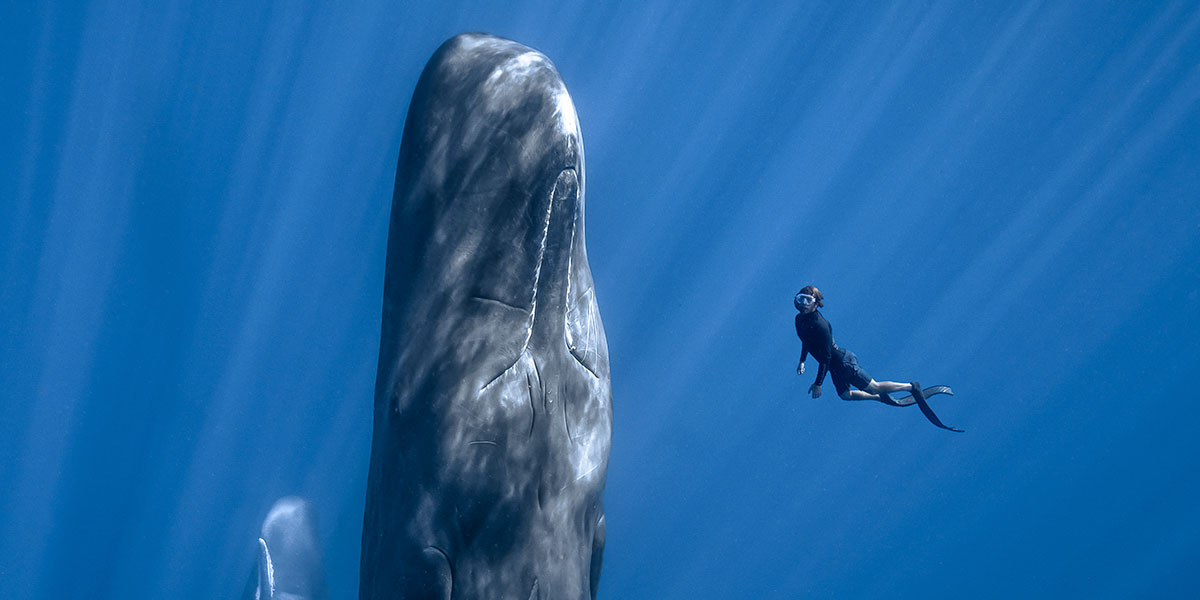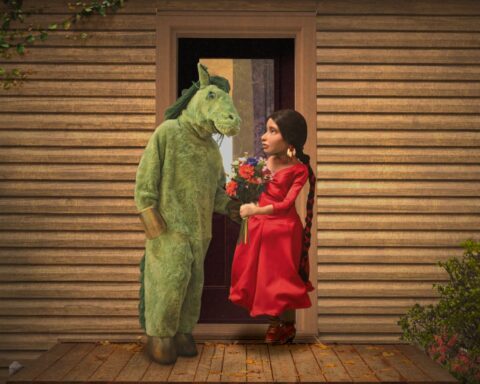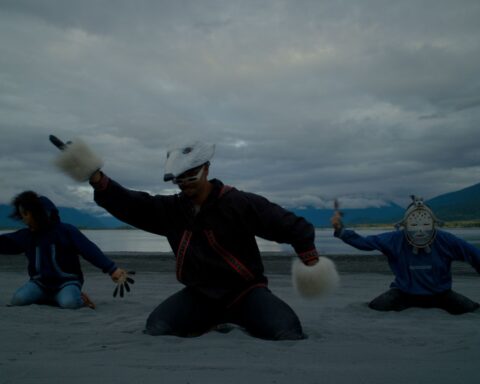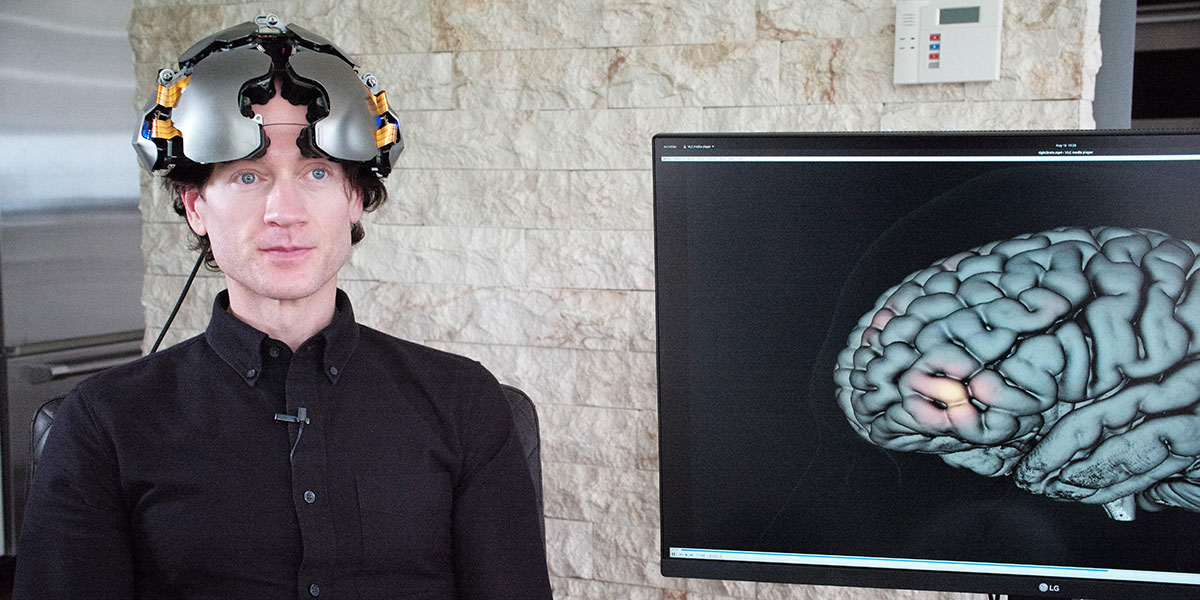Patrick and the Whale
(Australia, 72 min.)
Dir. Mark Fletcher
Programme: TIFF Docs (World Premiere)
Extraordinary underwater footage and an unbearable key subject collide in Patrick and the Whale. This well-intentioned misfire takes a page from the My Octopus Teacher’s playbook, netting the latter’s director James Reed as an executive producer. However, one could easily mistake it for the parody of My Octopus Teacher screening as part of the festival’s Documentary Now! sample. The laughs are just as plentiful in Patrick and the Whale as they are in Documentary Now!, but the intent, presumably, is not the same.
Patrick and the Whale is the story of underwater researcher Patrick Dykstra, who has a fondness for whales. He shares in one extended interview that forms the frame of the film how he loves whales and how he connects with them. The structure straight up lifts the framing device from My Octopus Teacher’s narrative. The direct address, moreover, is as self-serving here as Craig Foster’s interview in My Octopus Teacher. Like My Octopus Teacher, Patrick and the Whale largely defines animals in terms of their relationship to humans. Dykstra’s accounts anthropomorphize the whales, often referring directly to human qualities that function mostly for his own introspection. One will learn a lot about whales during this documentary. One will also sympathize deeply for the whales for all the hours of unbilled therapy.
Whales or Therapists?
Dykstra is one of five credited cinematographers in Patrick and the Whale and the underwater footage is genuinely stunning. The documentary gets up close with whales of all stripes, but Dykstra seems especially fond of sperm whales. He strikes up a “relationship” with one he calls Dolores. Dykstra explains how he and Dolores share an “intimate” connection. He unpacks elements of whale song that suggest she tries to communicate with her human friend. There’s also some nifty footage in which Dykstra and Dolores seem to play. They mimic each other’s movements in a game of monkey-see, monkey do. The images are among the best of any documentary on underwater life in recent memory.
Particularly thrilling is the action featuring a beloved whale named Can Opener and its baby. Dykstra develops such strong attachment to the animals that he shares how Can Opener appoints him babysitter of the calf while she goes fishing deep on the ocean floor. There’s a lot of projecting and speculation going on here. Moreover, Dykstra’s recollections become increasingly bizarre as he talks about getting the cold shoulder from Dolores and Can Opener when he tries to attach cameras to their heads in order to capture their dives. When Dolores swims past him without saying hello, Dykstra responds like a jilted lover in the schoolyard. It’s just one immature response among many that had this reviewer literally laughing aloud.
These animals aren’t here to play therapist. They’re wild beings, so treating them like schoolyard chums arguably undermines the film’s portrait of animal rights by forcing them into human personalities. If the whales could talk back, one suspects that Dolores and Can Opener would politely tell Patrick to keep swimming.














